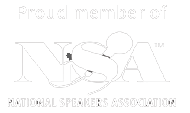
Is Your Personality Burning You Out?
Burnout is everywhere lately. I guess going through a global pandemic, shifting to at home work, going back to the office, getting your brain around AI, dealing with labor shortages, and trying to keep up with about 192 different communication channels might do that to a person. But you know what really might be responsible for your burnout? Your personality.
Two personality types tend toward burnout – perfectionists and people pleasers. Some people are both (and are barely able to lift their exhausted heads to read this). I am definitely on Team Perfection, and I bet many of you are too. Do you hold yourself to a high standard on almost everything you do? Do you feel driven to keep on meeting your responsibilities no matter what? Do you always strive to do your best?
That’s definitely me. I kept up my walking routine even with a fractured heel. I plan things obsessively. I’ve spent countless hours finding the perfect pictures for a PowerPoint presentation. And when I think about it, I’ve never heard anyone say, “Wow, that speaker was terrible, but their slide deck was off the chain! Let’s hire them!” No one really cares.
That’s perfectionism, tweaking the details beyond the point at which they really matter. And there’s a good part of me that values perfectionism. I want every aspect of my work to be as good as it can be. I would rather die than quiet quit. That’s not who I am. And I bet that’s not who you are either. After all, you’re taking the time to read a motivational newsletter.
But all this striving comes at a cost. No matter how hard we try, we can’t be 100% perfect. We could always do something better, faster, more creatively. So instead, we give it our best then beat ourselves up about how we could have been better, faster, or more creative. It’s exhausting, and over time, the stress of all this self-flagellation can lead to burnout. (I haven’t even addressed trying to please everyone all the time. If I had that affliction as well, my head would have exploded long ago.)
So what, fellow perfectionists, do we do? Just like in AA, the first step is admitting you have a problem. If work that you used to enjoy now leaves you exhausted, cynical, and frustrated, you have a problem.
Step Two – Give yourself a reason to change. I have to stop with the perfectionism because I spend way too much time working. I’m missing my life. I love my work, but I want to spend more time doing other things I enjoy. I want to travel to more places before I have to use a walker. What do you want to do? Spend more time with your kids? Grandkids? Work on your health? Figure it out, then when that perfectionism kicks in, ask yourself, “Do I need to rewrite this email or see the Northern Lights/watch my children grow up/lower my A1C?” Really, what the hell are we doing?
Step Three – Start enforcing hard stops. Examples: I will not work past 6:00 pm. Or I will not work on the weekends. Or I will not check email on vacation. Or maybe the hard stop is deciding how much time a project really deserves in advance. I will only spend one hour working on this godforsaken PowerPoint deck. I will only attend three meetings to discuss this project. (Please someone stop with the virtual meetings!)
Step Four – Try less than perfect when the stakes are low. Don’t rinse off the dishes before you put them in the dishwasher. Don’t reprint a document because it’s slightly crooked. Let it go, let it go, let it go. The more you realize that other people don’t care; that the end results aren’t impacted, the more you can turn down the pressure on yourself.
Step Five – Start being your own hero. No one is going to stop you from working yourself to death. No one will tell you, “Hey. I just sent you an email. It’s okay if you don’t respond till Monday.” Your perfectionistic, people pleasing mind is going to think, “I must respond right away, or they will think I’m a slacker. Who cares if I miss my child’s first steps/skip my workout and die of a heart attack/never see the Northern Lights?” You need a hero, and that hero is you.










